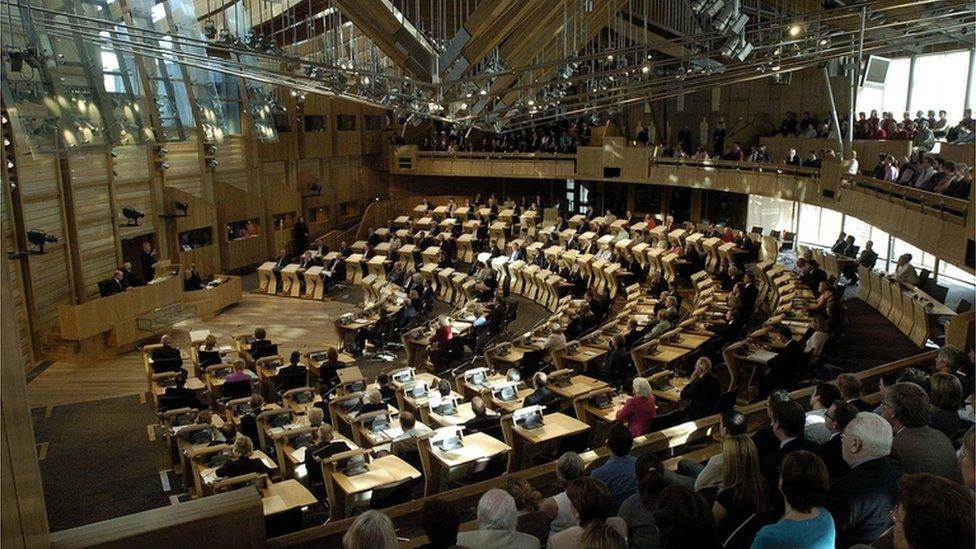MSPs hear plea for Scottish lobbying bill to cover electronic communications
- Published

The proposed legislation would enable the logging of face-to-face lobbying of MSPs or ministers
The emails, phone calls and written communications lobbyists have with Scottish politicians should be covered by the Lobbying (Scotland) Bill.
That was the message of witnesses giving evidence to members of Holyrood's standards committee.
The legislation promises, external a "measured and proportionate" register of lobbying and would require declarations of face-to-face lobbying of MSPs or ministers.
However, the current plan does not include modern communications.
Committee convener Stewart Stevenson told the witnesses - who included representatives from Electoral Reform Society Scotland, Unlock Democracy and Common Weal - that the matter could be revisited.
Labour MSP Neil Findlay, who took forward a Members' Bill on lobbying that prompted ministers to introduce their own plans, spoke to the committee.
He said: "The bill is a bit of a travesty from what I put forward.
"I think a lot of it bears little resemblance to what was agreed to be taken on by the government and I think if you look at some glaring examples the bill appears to be living in the 18th or 19th century and hasn't realised that the telephone and the computer have been invented, that we do things like conference calls and the like.
Dr William Dinan, director of Spinwatch, said the exclusion of electronic communications and emails from the bill was "frankly ludicrous", while Professor Raj Chari, from the department of political science at Trinity College Dublin, agreed it was "quite striking".
He said: "I've never seen this sort of wording before. It pains me to say that even the UK recognises that lobbying takes place by way of written communication."
'Blind spots in the bill'
In response to the concerns, Mr Stevenson said: "It may be worth saying, in the informal discussions the committee has had with itself, the Bill is unlikely to survive in its present form in relation to just oral communications."
The committee also heard concerns that the bill does not cover interactions with senior civil servants or special advisers.
Andy Myles, advocacy officer for Scottish Environment Link, said: "There are still blind spots in the bill and there are some real questions for civic organisation.
"My fear is that the complication and the complexity of the registration process may have the same effect as the Westminster Bill which undoubtedly has had effect on civic society in terms of making people shy away from the valuable participation which is recognised by this committee and this Parliament."
But Peter Duncan, chairman of the Association of Professional Political Consultants in Scotland, said the legislation "does strike a balance".
He said: "We started from a position of not seeing the overwhelming public case we have to say for legislation in this area, there is not an overwhelming public problem, but we accept a case has made and if there is going to be legislation this is a decent and balanced starting point."